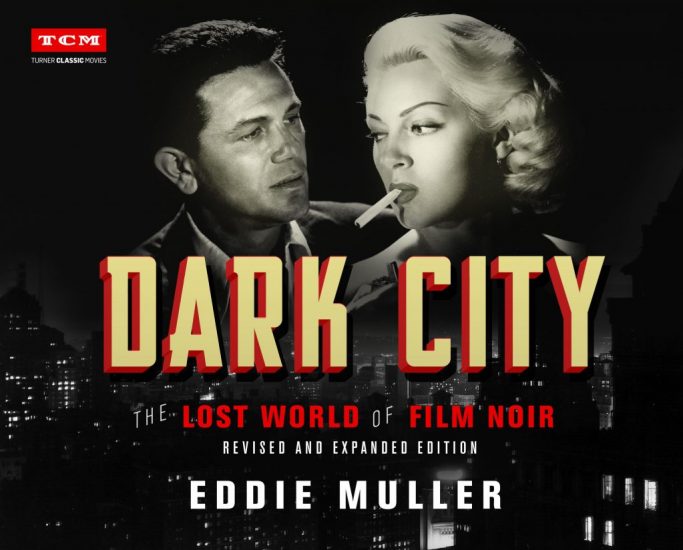After 23 years, Eddie Muller’s Definitive ‘Dark City: The Lost World of Film Noir’ Gets a New Lease on Life
While the rest of us tried to figure out what to do with sourdough starter last year in the throes of a global pandemic, Eddie Muller was busy revising and expanding the definitive tome on film noir.
In stores now, the new 2021 edition of Muller’s classic film book “Dark City: The Lost World of Film Noir” (Running Press, $30) is a gorgeously designed, visually compelling motion picture screen-shaped expanded version of the book he first released in 1998.
“I was nobody when this book was originally published,” said Muller in an interview with Eldredge ATL. “I had no authority on the subject whatsoever. I remember getting done with the manuscript and talking to someone who was a bit older who’s a real noir fan who said to me, ‘Well, my favorite noir is ‘Too Late For Tears.’’ I had to confess, a guy who had just written a book on the subject, ‘I don’t know that film.’ But that book allowed me to springboard into what I do now. It created this monster, so to speak. All of the film festivals came out of it, the creation of the Film Noir Foundation came out of it and my relationship with Turner Classic Movies and Noir Alley came out of it.”
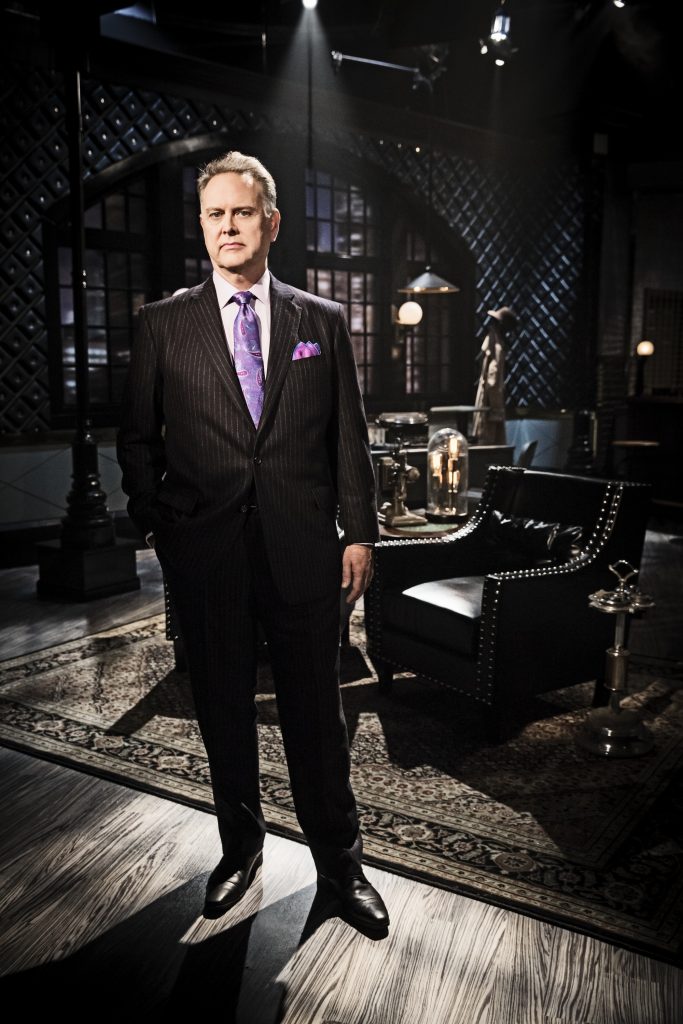
What a difference two decades makes. These days, Muller is known as “the czar of noir,” and he and the Film Noir Foundation, the nonprofit he founded, have rescued, restored and reintroduced dozens of noir classics, including a pristine restoration of the aforementioned 1949 noir essential “Too Late For Tears” starring genre mainstays Liz Scott, Dan Duryea, along with Don DeFore (who, prior to the film’s re-issue, was primarily known for his role as the milquetoast breadwinner on the early 1960s TV sitcom “Hazel”).
Muller is also the centrifugal force behind the nearly 20-year-old Noir City Film Festival held each year (well, the ones not complicated by a pandemic) in San Francisco. And since 2017, Muller has been the head barkeep and host of Turner Classic Movies’ popular weekly Noir Alley (seen Saturdays at midnight and Sundays at 10:00 am).
For Muller the writer, the expanded edition of “Dark City: The Lost World of Film Noir” is a rare publishing take-two — a fresh opportunity to include the vast volumes of information he’s learned over the past 22 years, along with spotlighting new copies of restored classics, including “Woman on the Run” and “The Man Who Cheated Himself.” The book also seeks to give proper appreciation to the many women, both on and behind the camera, who helped to create the booze-soaked, morally dubious shadowy realms we all know and love.
“Probably the biggest change from the first edition and from the general existing scholarship on film noir, is it was very male-centric,” says Muller. “I was able to go back, highlight and profile the work of people like [producer] Joan Harrison in the development of not only film noir but in the development of Alfred Hitchcock and [director] Ida Lupino, who were both essential to the genre. And the female novelists like Dorothy B. Hughes, Patricia Highsmith and Charlotte Armstrong [who also wrote under the name Jo Valentine] upon which many of these films are based. These people were not getting their due so I was happy to get to include a lot of that in this new edition.”
For fans of TCM’s Noir Alley, “Dark City” serves as a cinematically designed hardcover companion you’ll reach for often, brimming with Muller’s brainy but breezy, sardonic style. Basically, it’s like going on a gin-fueled (but ridiculously educational) weekend bender with the guy.
There are also fascinating shadowy side streets to venture down in “Dark City” that toss a klieg light on key noir actresses, including Barbara Peyton, Belita (the real-life Olympic figure skater turned noir moll), Gloria Grahame (who, for non-noir types, memorably strolls down Main Street like one of her noir characters in the all-too-brief Pottersville sequence of the holiday classic “It’s a Wonderful Life”) and of course, Lizabeth Scott (During this summer’s Neo Noir spotlight series on TCM, Muller introduced viewers to Scott’s final film outing in director Mike Hodges’ 1972 film “Pulp,” a movie that also stars one of the genre’s most unlikely figures, former MGM golden boy Mickey Rooney).
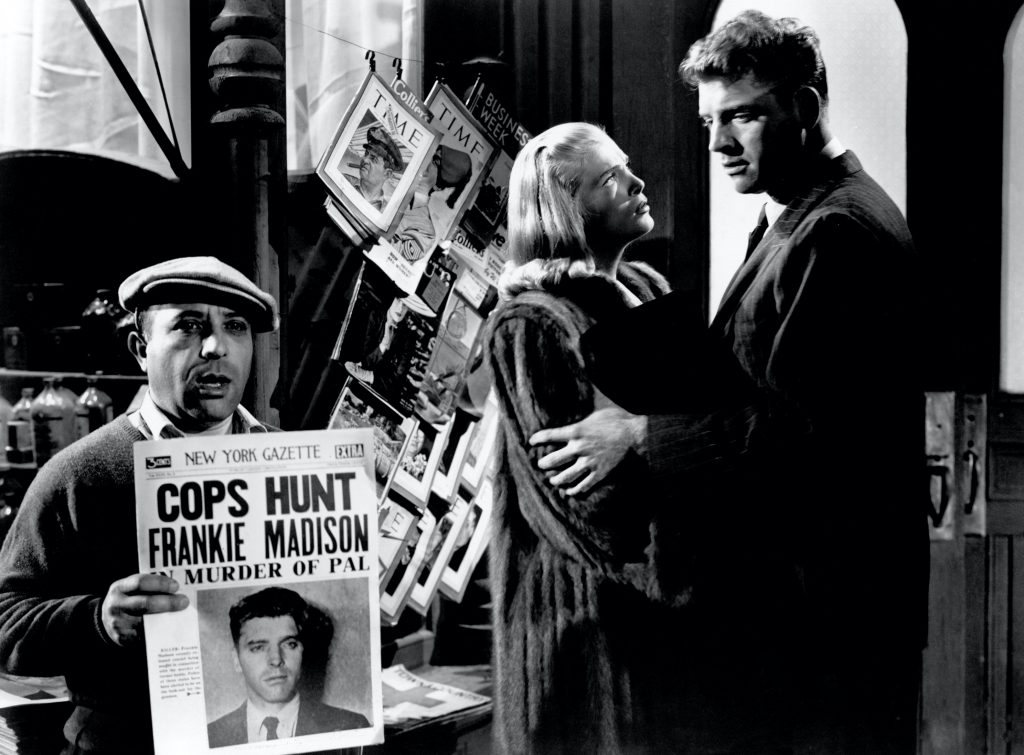
As it turns out, Rooney did a few film noirs, playing against type in his post-MGM years, including 1954’s “Drive a Crooked Road,” this weekend’s selection on TCM’s Noir Alley, Sept. 11 and 12. “It’s a really good film and Rooney is really good in it,” says Muller. “Rooney’s friend Richard Quine directed it. Quine understood that a little Mickey goes a long way. He really got him to underplay it and that’s why it works.” Muller says the film serves as a kind of unofficial sequel to Rooney’s so-bizarre-it’s-good 1950 noir “Quicksand’ co-starring Peter Lorre as an arcade operator. In Dark City,” Muller hilariously and accurately refers to the film as “Andy Hardy Goes to Hell.”
While it’s not technically a noir, Muller also includes the classic 1952 Humphrey Bogart newspaper drama “Deadline USA” in “The City Desk” chapter of “Dark City” (Or as we like to call it around here — the best newspaper movie not titled “All The President’s Men” ever made). Muller even contributes audio commentary on the crisp new Kino Lorber Blu-ray released in 2016.
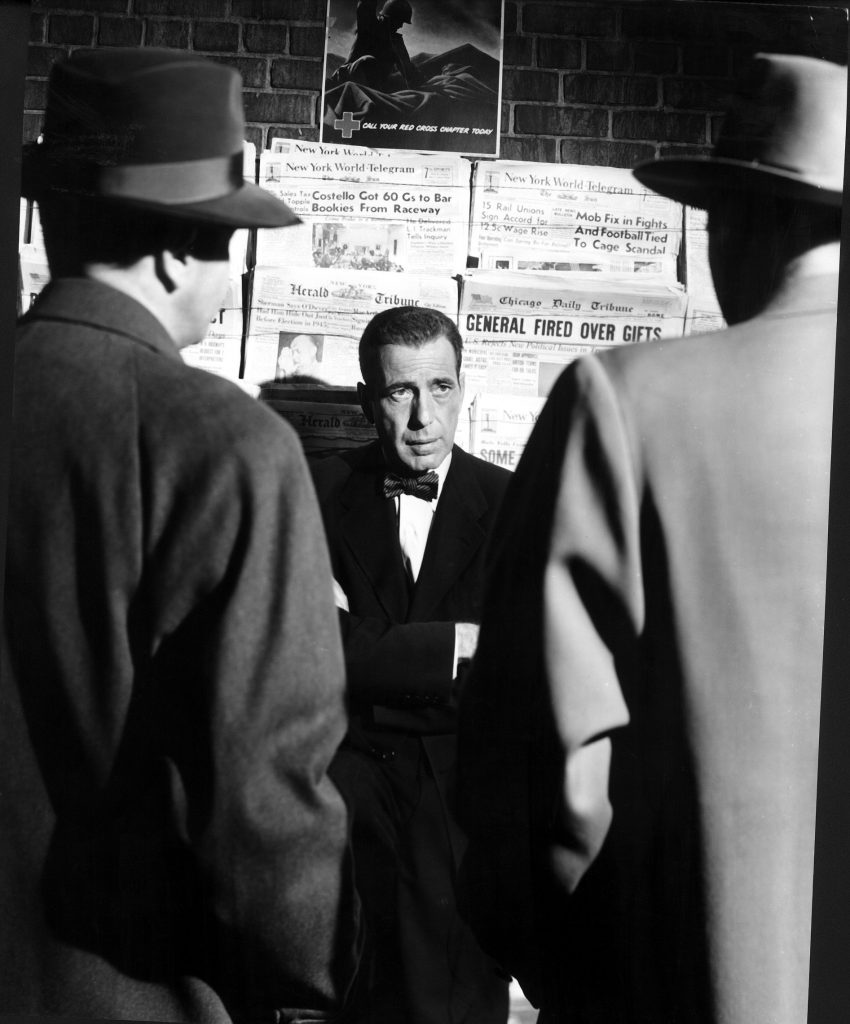
“Bogart is such a significant figure in the history of noir but this is one of the few times where he plays a completely stand-up guy,” explains Muller. “There wasn’t much shading to it. He’s the good guy in this movie. Two viewings of the film are especially significant to me. First, it was the first time I saw my father cry when we watched that movie together on television when I was very young. My dad [Eddie Muller, a long-time San Francisco Examiner sportswriter dubbed “Mr. Boxing”] was not a movie guy but by the time that movie ended, my dad was crying. Then in 2008, we showed it at the Noir City Film Festival in San Francisco. I have a lot of friends in the media and this was what was then the end of the newspaper business. And it seemed that all of them came to the screening that night. There was a gigantic cry fest in the mezzanine of the Castro Theatre at the end of that film. Bogart has several monologues in that movie that are particularly affecting to people who have worked for the fourth estate.”
Like its inclusion of “Deadline USA,” “Dark City” serves as an introduction to a lot of underappreciated and obscure noir and noir-adjacent classics, including 1947’s “Desert Fury,” a film that gets its own side street in the book titled “One Queer Movie.” And Muller isn’t underselling it.
“It is completely insane,” says Muller, laughing. “I included it in the book for the insanity quotient. I stretch the definition of noir to include ‘Desert Fury’ just because so many people who made a mark in noir are involved in the production. Robert Rossen did the screenplay based on a book written by a young woman, Ramona Stewart. And when I call it the gayest movie ever made in classic Hollywood, sometimes, people think I’m making this up. I have three copies of ‘Desert Town’ and there is no mistaking the gay content in the book. They just had to figure out how to get it onscreen in the movie. I mean Burt Lancaster’s in it, Mary Astor, Liz Scott and John Hodiak. It’s ablaze with Technicolor and it’s overwrought in every way. For me, it was impossible not to completely surrender to it and the Hollywood craziness of it.”
In addition to the new edition of “Dark City: The Lost World of Film Noir,” after a month’s vacation during August’s Summer Under the Stars line-up, Muller and Noir Alley are back on TCM this month. After shooting his intros and outros at home for the bulk of 2020 during the pre-vaccine era of the pandemic, Muller is finally back on his luxurious, shadowy set in Atlanta.
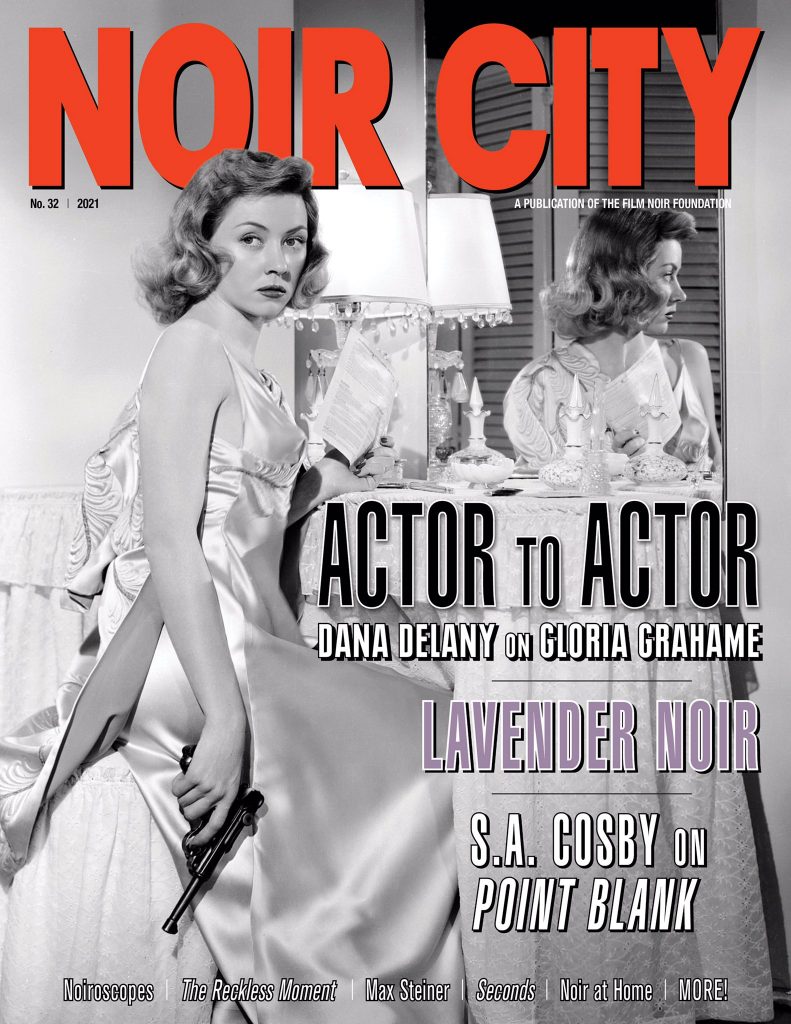
And he’s got a special guest host, actress Dana Delany, who has penned the cover story on noir icon Gloria Grahame in the new issue of Noir City magazine.
Previews Muller: “We’re paying tribute to Grahame with two movies we’re showing, ‘Human Desire’ [on Sept. 18] and ‘The Glass Wall’ [airing on Oct. 2]. Gloria Grahame served as a muse for Delany, who sort of inspired her to become an actress. She does a deep dive into her career, along with insights you only get from one actress to another.”
The new expanded edition of “Dark City: The Lost World of Film Noir” by Eddie Muller is in stores now. Noir Alley airs weekly on Turner Classic Movies at Saturday at midnight with an encore Sundays at 10 am. Learn more about Muller’s Film Noir Foundation here and the Noir City Film Festival here.

Richard L. Eldredge is the founder and editor in chief of Eldredge ATL. As a reporter for the Atlanta Journal-Constitution and Atlanta magazine, he has covered Atlanta since 1990.

